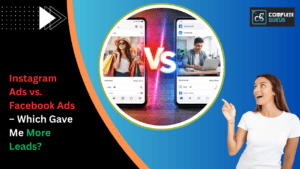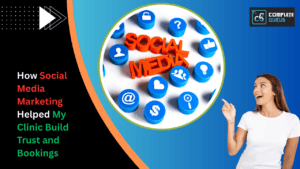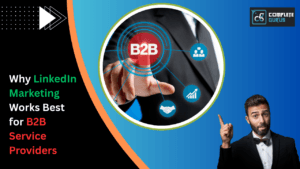In today’s digital landscape, Facebook has evolved beyond a social networking platform into a powerful tool for therapists and mental health professionals to connect with potential clients, build community, and promote their services effectively. This article explores actionable strategies, personal anecdotes, and practical insights to help therapists leverage Facebook marketing to grow their practice, foster client relationships, and enhance mental health advocacy.
Recognizing the Potential of Facebook for Therapists
Facebook’s vast user base and robust advertising capabilities present therapists with unparalleled opportunities to reach a targeted audience interested in mental health and wellness. Whether through organic content, paid advertising, or community engagement, leveraging Facebook effectively can significantly impact client acquisition and practice growth. As a therapist, I initially hesitated to embrace social media for professional purposes, concerned about privacy and ethical considerations. However, recognizing the potential to reach individuals in need of mental health support prompted me to explore Facebook as a tool for promoting mental wellness and expanding my client base.
Establishing a Professional Presence
Creating a professional Facebook Page is the first step in establishing a credible online presence for your therapy practice. Customize your Page with a professional profile picture, cover photo, and detailed information about your services, specialties, and approach to therapy. A well-crafted Page reinforces trust and encourages potential clients to learn more about your practice. When setting up my therapy practice’s Facebook Page, I ensured to include a clear description of my therapeutic approach, qualifications, and areas of expertise. This transparency helped build credibility and reassured potential clients seeking specialized mental health support.
Crafting Compelling Content to Educate and Engage
Content creation plays a pivotal role in Facebook marketing for therapists. Share informative articles, tips for mental wellness, strategies for coping with stress, and insights into therapeutic techniques to educate your audience and position yourself as a knowledgeable authority in mental health.
Example: I started a weekly series on my Facebook Page called “Mindful Mondays,” where I shared practical mindfulness exercises and techniques for managing anxiety and improving emotional well-being. These posts not only attracted engagement but also established my Page as a valuable resource for mental health tips and support.
Utilizing Facebook Groups for Community Engagement
Facebook Groups provide therapists with platforms to create communities, facilitate discussions, and offer support to individuals interested in mental health topics. Join relevant groups or create your own to connect with potential clients, share valuable resources, and foster meaningful relationships within your target audience.
Personal Insight: I established a private Facebook Group for clients and community members interested in mindfulness and self-care. This Group became a space for sharing articles, hosting live Q&A sessions, and providing peer support, enhancing engagement and nurturing a supportive online community around mental health.
Leveraging Facebook Ads for Targeted Outreach
Facebook Ads enable therapists to target specific demographics, interests, and behaviors, ensuring their messages reach individuals most likely to benefit from therapy services. Whether promoting initial consultations, specialized therapy programs, or educational webinars, targeted ads can increase visibility and drive client inquiries. I launched a Facebook ad campaign targeting local residents experiencing work-related stress, using ad copy that highlighted the benefits of therapy in managing stress and achieving work-life balance. This targeted approach resulted in an influx of inquiries from individuals seeking support in navigating their mental health challenges.
Engaging with Authenticity and Empathy
Authenticity and empathy are integral to building meaningful connections with your audience on Facebook. Share personal stories, client testimonials (with permission), and genuine insights into your journey as a therapist. Authentic engagement fosters trust and encourages individuals to reach out for professional support.
Example: I shared a personal reflection on my Facebook Page about overcoming burnout as a therapist, discussing the importance of self-care and seeking support when facing professional challenges. This candid post resonated with followers, sparking conversations about mental health advocacy and the role of therapy in maintaining well-being.
Hosting Live Sessions and Virtual Workshops
Facebook Live sessions and virtual workshops offer therapists opportunities to connect with a broader audience in real-time, share expertise, and address common mental health concerns. Whether hosting live Q&A sessions, mindfulness workshops, or therapeutic skill demonstrations, interactive sessions humanize your practice and attract engagement. I hosted a Facebook Live session on stress management techniques during Mental Health Awareness Month, inviting viewers to participate in guided mindfulness exercises and discussing strategies for coping with stress in daily life. This interactive session not only educated participants but also showcased my expertise and approach to therapy.
Monitoring Performance and Adjusting Strategies
Analyzing Facebook Insights and ad performance metrics is essential for optimizing your marketing strategies. Track metrics such as reach, engagement rates, audience demographics, and content performance to assess what resonates with your audience and refine your approach accordingly. By regularly reviewing Facebook Insights, I identified the optimal times for posting content, the types of posts that generated the most engagement, and the demographics of my audience. This data-driven approach informed my content strategy, enabling me to tailor content to meet the needs and preferences of my followers effectively.
Building Referral Networks and Collaborations
Building relationships with local healthcare providers, community organizations, and complementary service providers can expand your referral network and enhance your Facebook marketing efforts. Collaborate on content, cross-promote services, or participate in joint initiatives to increase visibility and credibility within your community.
Example: I collaborated with a nutritionist and fitness instructor on a series of Facebook posts about the link between physical health and mental well-being. This collaboration not only diversified my content but also introduced my therapy practice to new audiences interested in holistic approaches to health and wellness.
Suggested reading: Harnessing Facebook Marketing To Grow Your Spa Business
Conclusion: Harnessing the Power of Facebook for Growth
In conclusion, leveraging Facebook marketing effectively can significantly contribute to the growth and success of your therapy practice. By establishing a professional presence, crafting compelling content, engaging authentically with your audience, utilizing targeted ads, hosting interactive sessions, monitoring performance metrics, and fostering collaborations, therapists can expand their client base, enhance community engagement, and promote mental health advocacy through strategic Facebook marketing initiatives.
As therapists navigate the evolving landscape of digital marketing, integrating authenticity, empathy, and a commitment to mental wellness into their Facebook strategies can foster meaningful connections and position them as trusted resources in supporting individuals’ mental health journeys. By embracing the potential of Facebook as a platform for education, engagement, and client outreach, therapists can make a lasting impact in promoting mental well-being and resilience within their communities.

I am Ashutosh – a seasoned digital marketer, bringing digital transformation to businesses, complementing businesses’ growth via generating qualified leads, drive site inbound traffic via organic and inorganic approach, & build their brands through useful, well-designed marketing strategies and Marketing Automation implementation via Chat GPT, HubSpot & Zoho.







